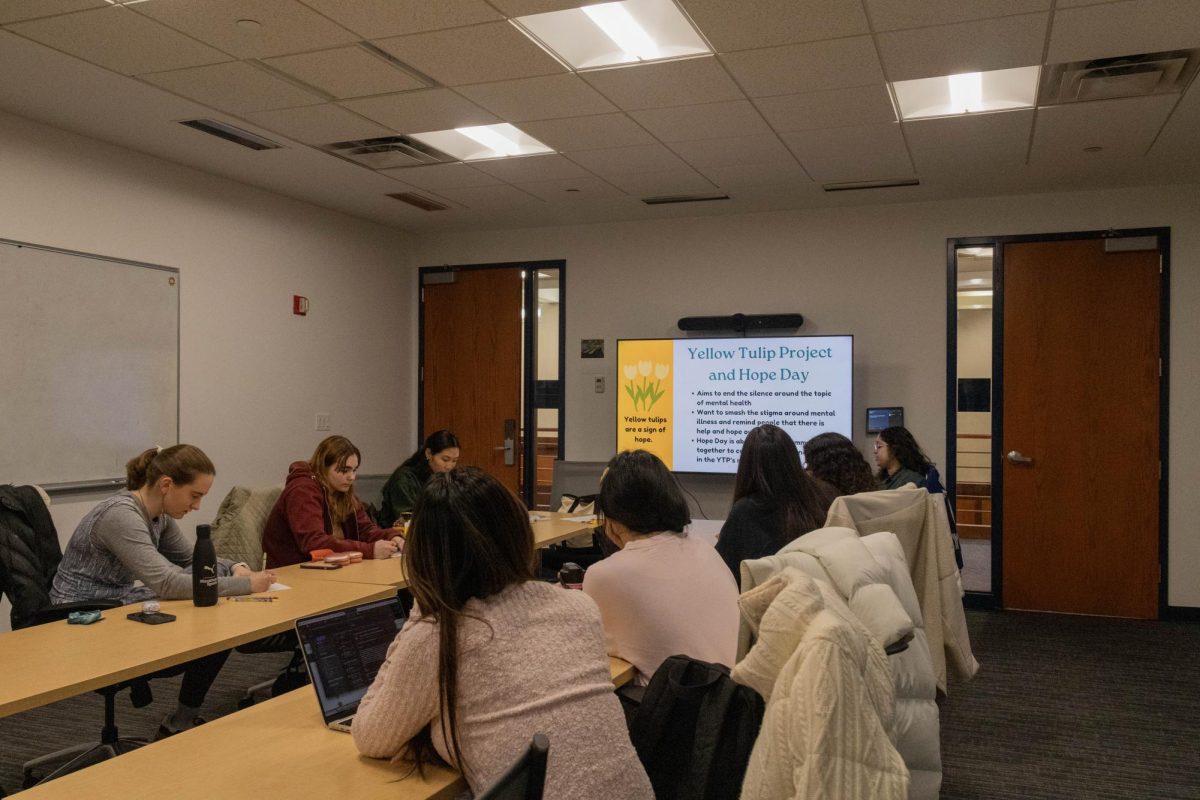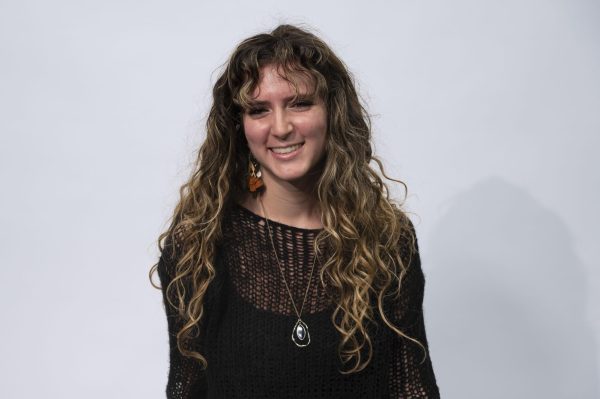The Northeastern chapter of Active Minds will host its first Hope Day April 7 on Centennial Common, offering students an afternoon of interactive activities, therapy dogs and peer support to promote mental health awareness on campus.
The group behind the event, Active Minds NU, is made up of a core group of 20 to 30 regular members who actively participate in weekly meetings, while more than 300 students have joined the club’s Slack channel. The group meets on Tuesdays every week to discuss how to advance mental health knowledge on campus and help students experiencing psychological problems.
Active Minds is a national organization dedicated to promoting mental health founded by Alison Malmon in 2000. She started the program when she was a third-year at the University of Pennsylvania following the suicide of her older brother and only sibling, Brian. During that time, Malmon realized that there are thousands of young people experiencing the same problems as Brian, but shame was preventing them from asking for mental health support. This spurred her to establish Active Minds, which has flourished into an organization with hundreds of chapters at schools and universities nationwide.
The need for support is clear. According to a report from the National Ambulatory Care Survey, between 2006 and 2019, patients aged 13 to 24 made 1.1 billion healthcare visits, 145 million of which involved mental health issues.
At Northeastern, Active Minds is part of a broader effort to normalize conversations around mental health and help students feel less alone.
“I feel like I’m a part of something bigger for Northeastern. [Active Minds is] really trying to pave the way to advocate for students with mental illnesses on campus and try to improve their quality of life here,” said Annabelle Hatsav, a fourth-year English and communication studies combined major and a general member of Active Minds.
Rachel Joseph, a fourth-year behavioral neuroscience major and president of Active Minds, believes the activities put on by the organization are meaningful and significant.
“I hope that students will be more willing to talk about mental health and to seek out resources. I think there’s a lot of really helpful resources on campus for mental health that a lot of people don’t know about,” Joseph said.
One of the organization’s biggest initiatives this semester is Hope Day, a campus-wide event designed to promote mental health awareness and provide a space for students to reflect and engage with resources. Originally, the plan was to plant yellow tulips — the symbol of the Yellow Tulip Project, a national organization dedicated to ending the stigma around mental illness. However, logistical challenges led to a shift in approach.
Treasurer Sarah Takeda-Byrne, a fourth-year computer science and economics combined major, reflected on the evolving nature of Hope Day, explaining how the initial vision had to be adapted.
“Originally, it was just gonna be a day where we would plant a bunch of yellow tulips on campus, and we were going to talk to the horticulture team to make that happen. But that didn’t work out, and we had to rethink how we viewed what Hope Day was gonna be,” she said.
Rather than focusing solely on the tulips, Active Minds reimagined Hope Day as a large-scale, student-driven event on Centennial Common, emphasizing broad engagement and accessibility. The organization hopes to make Hope Day an annual event going forward.
“I’m actually glad it didn’t work out now because we’re making it more of a student-based thing, where we can collaborate with a bunch of even non-wellness-related clubs on campus and get as many people involved as possible,” Takeda-Byrne said.
At the event, student organizations such as the Cheese Club, Mural Club and the Origami Club will host various interactive tables to promote mental wellness and community connection.
Self-care activities like rock painting, crafting pots that resemble yellow tulips, and making origami flowers will create a welcoming space for students to pause, reflect and care for their mental well-being in a creative and low-pressure way.
The Northeastern University Police Department will also be present with its therapy dogs, Cooper and Sarge, providing comfort and support. Mental health awareness booths will be set up throughout the event to provide information and resources.
Finally, students will be invited to take part in a collective banner project, where they can sign, draw on or attach origami flowers to a giant banner — creating a symbolic mental health garden that grows throughout the day.
“A lot of times when you let people think they’re just going to be lectured about something, they’re not as engaged,” said Hana Sullivan, a first-year criminal justice and psychology combined major and general member of Active Minds. “So we’re going to be collaborating with clubs to make it a little more fun and engaging.”
With events like Hope Day and ongoing advocacy efforts, Active Minds is working to ensure that mental health remains a priority at Northeastern. Making resources available is just one step — equally important is creating a culture where students feel safe leaning on one another.
“I want there to be some sense of unity and community between our student body,” Takeda-Byrne said. “We want to support each other and to make sure that they know that they’re able to lean on the school for any type of troubles that they’re going through.”










